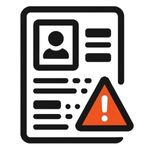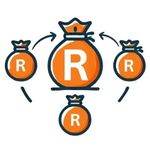
Investing is often seen as a step towards financial growth, but many South Africans wonder if this option is still available to them when they’ve been blacklisted. Being blacklisted typically refers to having a poor credit record, which can make it difficult to access traditional financial products. While a negative credit history may limit some options, it does not necessarily mean that investment opportunities are completely out of reach.
DISCLAIMER: This article is intended for informational purposes only and does not constitute financial advice. Readers should seek guidance from a licensed financial advisor before making any investment decisions.
Key Takeaways
- Being Blacklisted Doesn’t Mean You’re Banned from Investing: While poor credit can limit access to traditional investment products, there are alternative options available such as peer-to-peer platforms and fintech apps that may not require credit checks.
- You Can Repair Your Credit Over Time: Settling overdue accounts, maintaining consistent repayments, and checking your credit report for errors can help improve your score and increase access to financial products.
- Caution Is Needed with Alternative Offers: Some products marketed to blacklisted individuals, like high-interest loans, can worsen financial difficulties. It’s vital to understand the risks and ensure any platform is properly regulated in South Africa.
About Arcadia Finance
Apply with confidence through Arcadia Finance. No application fees, just a choice of 19 NCR-compliant lenders. Enjoy a smooth, secure process designed around your financial needs.
What Does Being Blacklisted Mean in South Africa?
In the context of South Africa’s credit system, the term ‘blacklisted’ typically refers to a person with a poor credit record or low credit score.
There is no official or centralised list where individuals are formally marked as blacklisted. Instead, the idea of being ‘blacklisted’ is based on a person’s credit behaviour, as reflected in their credit report and overall credit score.
When someone consistently fails to make payments on time, misses instalments, or uses most of their available credit, it signals to lenders that they may struggle to meet future repayment obligations. This usually leads to a lower credit score and a reduced chance of being approved for credit, as most lenders become hesitant to offer financial products to such individuals.

How to Check If You Are Blacklisted
South African consumers have the right to access one free credit report each year. This report can be obtained from any of the major credit bureaus operating in the country, including TransUnion, Experian, Compuscan, and XDS.
The credit report will provide your credit score and a detailed summary of your credit history. It also gives you the opportunity to identify and correct any inaccuracies or outdated information that may be affecting your score.
If your credit score is low and your report does not show any errors, you still have the ability to improve your credit standing over time. One of the most effective ways to do this is by settling overdue accounts. Although doing so will not immediately remove the negative listings from your record, it can begin to improve your credit score gradually.
Paying off debt instead of shifting it around from one account to another is also beneficial. Reducing your overall debt load and showing consistent repayment behaviour will reflect positively on your credit profile.
Your credit score is based on the data found in your credit report. This includes your payment history, the total amount of debt you owe, the age and activity of your credit accounts, any legal judgements or defaults, and the number of credit applications or enquiries made in your name.
Lenders assess your creditworthiness by evaluating your behaviour with credit. The score itself is merely a numerical representation of your credit habits, whether they have been responsible or not.
DISCLAIMER: Investing carries risks, including the potential loss of capital. Past performance of any investment option does not guarantee future returns.

Can You Still Invest While Blacklisted?
Yes, you can still invest if you are blacklisted, but your options are more limited. The main restriction is that you cannot access investments that rely on credit. For example, applying for a home loan to buy property, taking out vehicle finance, or getting a personal loan to fund an investment will almost always be declined. Lenders view a poor credit history as too risky.
That said, many investment opportunities in South Africa remain open because they do not require borrowing. If you have cash available, you can still grow your money through:
- Tax-Free Savings Accounts (TFSAs): These allow you to save and invest without paying tax on your returns. Many local banks and investment platforms such as FNB, Capitec, or Nedbank offer them.
- Stock Market Investments: Platforms like EasyEquities make it possible to buy shares or exchange-traded funds (ETFs) with small amounts of cash. Your credit score does not affect your ability to invest this way.
- Unit Trusts and Retirement Products: You can contribute directly to unit trusts or retirement annuities through providers such as Allan Gray or Coronation, provided you use your own funds.
- Stokvels and Community Investments: These traditional savings groups remain popular and are entirely cash-based. Joining a stokvel lets you save and invest alongside others, regardless of your credit status.
Being blacklisted does not stop you from building wealth. It simply means you need to focus on cash-based investments rather than credit-driven ones. By steadily saving and investing with your own money, you can secure long-term growth while also working to repair your credit record.
DISCLAIMER: Being blacklisted may limit your access to credit and certain investment products. Options discussed here are general in nature and may not apply to every individual’s financial situation.
How to Get Clearance from Credit Bureaus

Pay Your Debts on Time
Have you ever missed a payment or struggled to manage your debt obligations? Accumulating debt without keeping up with repayments can have serious, long-term effects on your financial standing. If your payment history reflects poorly, your name may be flagged the next time you apply for credit. This flagging could lead to your application being declined.
A common scenario involves failing to pay off credit cards, furniture accounts, or retail store credit. These seemingly minor debts can cause major issues when applying for larger forms of credit such as a home loan. Neglecting these smaller obligations can ultimately have a negative impact on your credit score.
There is some encouraging news. It is possible to have your name cleared with the registered credit bureaus operating in South Africa. Consistent, timely repayments towards your debts can help restore your credit status and improve your chances of qualifying for future loans or a bond.

Negotiate with Your Credit Providers
If you’re aiming to rebuild your credit score and improve your chances of loan approval, addressing your current debt is a crucial step. One practical approach is to contact your creditors and arrange a manageable repayment plan. You might choose to agree on a monthly instalment you can afford, or request a settlement amount to pay off the debt in full.

Look Into Bad Credit Loan Options
Even with a poor credit record, you may still be able to access financing. A number of lenders cater to individuals classified as high-risk. This is where a bad credit loan could become relevant. These loans are designed specifically for people who have experienced repayment difficulties in the past.
Is it still possible to qualify for a loan with a poor credit history? The answer is yes. If creditors have taken action against you, you may still be eligible to apply. Some lenders are willing to consider personal loan applications from individuals who do not meet the criteria of mainstream institutions.
Many non-traditional lenders, particularly those operating online, now provide credit products specifically tailored to consumers with impaired credit records. These products may come with different terms, but they could still provide access to much-needed funds.
Having a poor credit record or outstanding debt doesn’t make you an outlier. Thousands of South Africans are in a similar position and still actively seek loan options. You’re not alone and solutions are available.

Consider a Consolidation Loan
Debt consolidation is another option worth considering. This involves combining multiple smaller debts into a single loan, often at a lower interest rate. This arrangement typically allows you to reduce your monthly repayments and repay your debt over a more manageable period. Consolidating can help improve your credit score, although this improvement won’t be reflected immediately by credit bureaus. Over time, however, it may help position you better when applying for future credit.

Check and Understand Your Credit Record
Unsure about your current credit standing? It is wise not to make assumptions about your financial health. Before applying for a credit product, whether a loan or a credit card, it’s worth knowing your actual credit score.
You may believe your score is in poor shape, but this is not always the case. By obtaining your credit report, you’ll gain clearer insight into your creditworthiness. This report outlines your payment history and overall financial behaviour.
It’s important to note that not all missed payments affect your score. For instance, falling behind on a municipal bill does not typically affect your credit profile. Your credit score is based on how well you manage credit accounts, rather than every payment you make.
Obtaining this information can be an effective first step in planning your next move towards financial recovery.
DISCLAIMER: All investments in South Africa are subject to the rules and oversight of the Financial Sector Conduct Authority (FSCA) and other applicable regulators. Always ensure that the institution or product you choose is properly licensed and compliant.

Practical Tips for Blacklisted Investors
Being blacklisted does not mean you cannot build wealth. It simply means you need to be more cautious and deliberate with your financial choices. Here are some practical steps you can take if you want to start investing while blacklisted in South Africa:
- Start small and realistic: Begin with investments that do not require large sums of money. Many digital platforms and collective schemes allow you to start with as little as a few hundred rand. This helps you stay consistent without placing unnecessary pressure on your budget.
- Prioritise liquidity: Choose investment options that allow you to access your funds when needed. Products such as money market funds or flexible savings accounts provide growth potential while still giving you the option to withdraw in emergencies.
- Avoid unnecessary risk: It may be tempting to chase high returns, but speculative investments often lead to losses. Focus on safer and more predictable products that match your current financial position. Stability should take priority over chasing quick profits.
- Keep building good financial habits: Even while investing, continue setting aside money to repay debts and build an emergency fund. Consistency in saving and disciplined spending will improve your financial standing over time, which can eventually help you clear your name with credit bureaus.
- Seek professional guidance: A licensed financial adviser can help you understand the options that suit your circumstances. Professional advice can also protect you from scams that specifically target blacklisted individuals.
Conclusion
Being blacklisted in South Africa does not mean you are permanently excluded from financial opportunities, including investment. While a poor credit record can create barriers to mainstream financial products, there are still viable options available through regulated alternative platforms. The key is to approach these cautiously, avoid predatory offers, and focus on gradually improving your credit standing. By settling outstanding debts, negotiating affordable repayment terms, and regularly monitoring your credit report, you can work towards financial recovery and potentially regain access to more traditional investment channels over time.
Frequently Asked Questions
Yes, you may still be able to invest even with a low credit score. While traditional banks may restrict access, some fintech platforms and peer-to-peer investment networks offer alternatives that don’t rely heavily on credit checks.
Some do. Many licensed investment firms, especially those offering retirement products or managed portfolios, may conduct a credit assessment before opening certain types of accounts.
Paying off debts helps improve your score gradually, but negative listings may remain for a period. However, consistent repayment behaviour over time will reflect positively on your credit profile.
Yes, some non-traditional lenders in South Africa offer bad credit loans designed for individuals with poor credit history. These loans typically come with higher interest rates and stricter terms.
You can request one free credit report per year from credit bureaus like TransUnion, Experian, Compuscan, or XDS. This will show your credit score, defaults, judgements, and any active listings against your name.
Fast, uncomplicated, and trustworthy loan comparisons
At Arcadia Finance, you can compare loan offers from multiple lenders with no obligation and free of charge. Get a clear overview of your options and choose the best deal for you.
Fill out our form today to easily compare interest rates from 19 banks and find the right loan for you.


